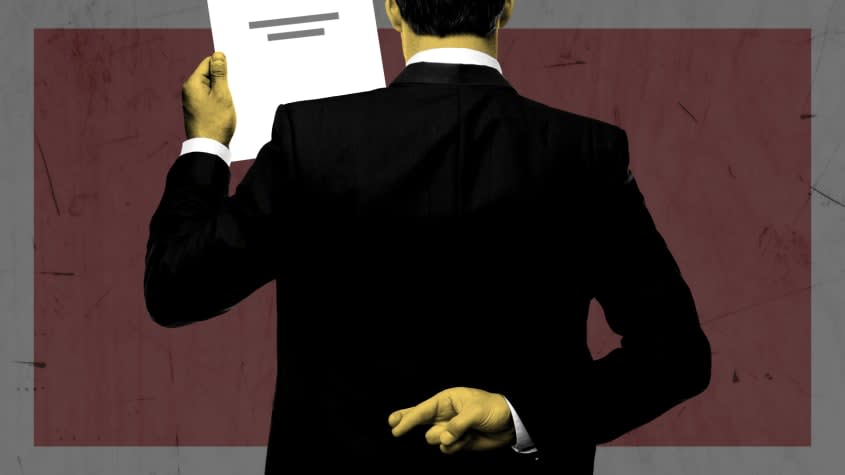The problem with academic funding, in 1 ironic scandal

- Oops!Something went wrong.Please try again later.
In 2012, a team of researchers including behavioral economist Dan Ariely published a paper about how to prevent cheating. According to their studies, people were less likely to lie when they signed an honesty declaration at the beginning of a form instead of at the end. The idea, which Ariely expanded in a popular book, caught on. In addition to generating a large scientific literature, it was the centerpiece of a financial technology startup.
Now it turns out that the research on cheating may have been faked. In a blogpost last week, an anonymous team of scholars argued the data could not have been generated by genuine experiments. Buzzfeed reports that all the researchers who participated have denied personal responsibility. But none dispute that fraud occurred.
Scrutiny will focus on Ariely, a prolific TED talker. But the problem goes deeper than possible misconduct by one high-profile researcher.
Social science is already in the grip of a so-called replication crisis. In other words, researchers don't get the same results they find in published papers when they attempt the same experiments or re-analyze the original data. The problem seems worst in psychology, but economics is not much better. A large portion of publications in these areas, which are widely influential in public policy, finance, and education, just don't hold up.
The explanation probably isn't that social scientists are less moral than in the past. As academic funding and hiring stall, scholars in all disciplines face pressure to produce striking, easily summarized findings that they can effectively promote to a non-specialist audience. That makes it more likely that they'll cut corners rather than derail a promising study. Outright fraud is just the extreme case.
Manipulation to produce favorable results is exactly what behavioral economics would predict in this situation. So it's ironic that one of the leading practitioners of the field seems caught in a trap that his own ideas help explain. The solution isn't gimmicks like honesty statements. Reforming social science means changing funding and professional incentives that encourage dishonest behavior by concentrating rewards on the biggest names, most charismatic personalities, and splashiest arguments. In other words, the benefits enjoyed by Ariely himself.
You may also like
Actor suspected of participating in Capitol attack arrested in California
10 things you need to know today: August 22, 2021
U.S. embassy warns Americans against traveling to Kabul airport barring individual instructions

